Mastering the Basics: How to Play Golf for Beginners Step-by-Step
Key Takeaways:
- Playing golf requires patience and dedication, as it is a challenging and rewarding sport.
- Beginners should prioritize finding suitable beginner-friendly golf clubs and accessories to enhance their learning experience.
- Taking golf lessons from experienced players or mentors can greatly benefit beginners in understanding the sport and improving their skills.
- Understanding the basic rules and etiquette of golf is essential for beginners to play the game properly.
- Utilizing online resources and seeking guidance from experienced players can help beginners grasp the rules and etiquette more effectively.
- Beginners should be mindful of the dos and don’ts of golf to ensure a pleasant experience on the course.
- The golf swing is a crucial aspect of the game, and beginners should focus on achieving the correct set-up and avoiding swinging with the arms.
- By prioritizing swinging with the hips and having one thought at a time during the swing, beginners can improve their swing technique.
- Developing skills in golf involves learning and correcting shot techniques, swinging in tempo, and utilizing tools like GPS watches and shot tracking devices.
- Using data and making smart decisions based on it can greatly enhance a beginner’s performance on the golf course.
- In order to enjoy the game, beginners should manage their expectations and embrace the learning process.
- Perseverance and dedication are key to improving in golf and experiencing the full enjoyment of the sport.
- Having fun on the course and appreciating the journey of learning can make the game more enjoyable for beginners.
- A recap of important points for beginners includes the need for patience and dedication, finding suitable clubs, understanding rules and etiquette, focusing on the correct swing technique, developing skills through practice, and embracing the learning process.
- Continued practice and seeking improvement are encouraged for beginners to progress and enjoy the game to its fullest.
- Golf is not just a sport, but also an opportunity to develop character, learn life lessons, and enjoy the beauty of the game.
Introduction
Golf, a challenging and rewarding sport, requires patience and dedication. In this article, we will explore how to play golf for beginners. Delve into the fundamental techniques and strategies to enhance your game. Discover the importance of proper equipment and understand the rules of the game. Whether you’re a complete novice or have some experience, this article will provide valuable insights to kickstart your journey in the world of golf.
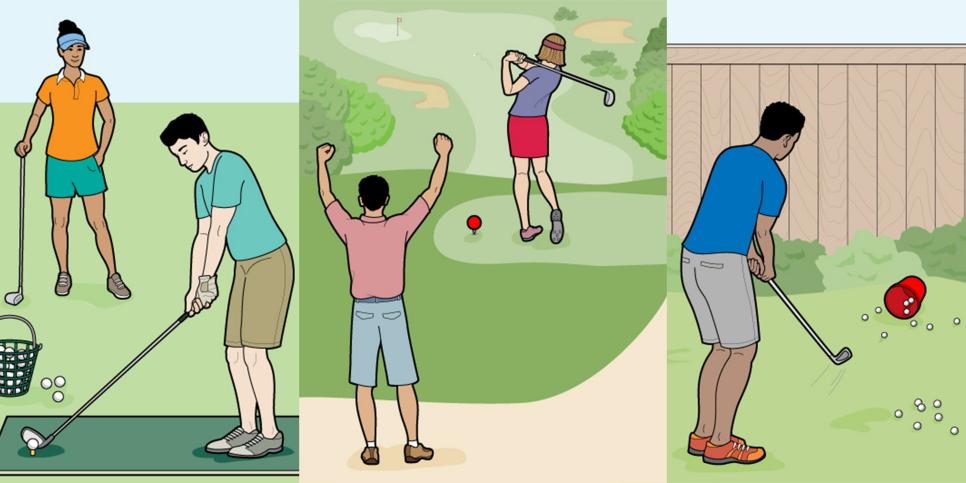
Overview
Golf is a hard yet satisfying sport. It needs patience and commitment. This article is a guide for those who want to start playing golf.
Beginners must use beginner-friendly golf clubs. It is important to get the right set of clubs and accessories for comfort and better performance. Taking golf lessons helps too. They provide expert advice and instruction.
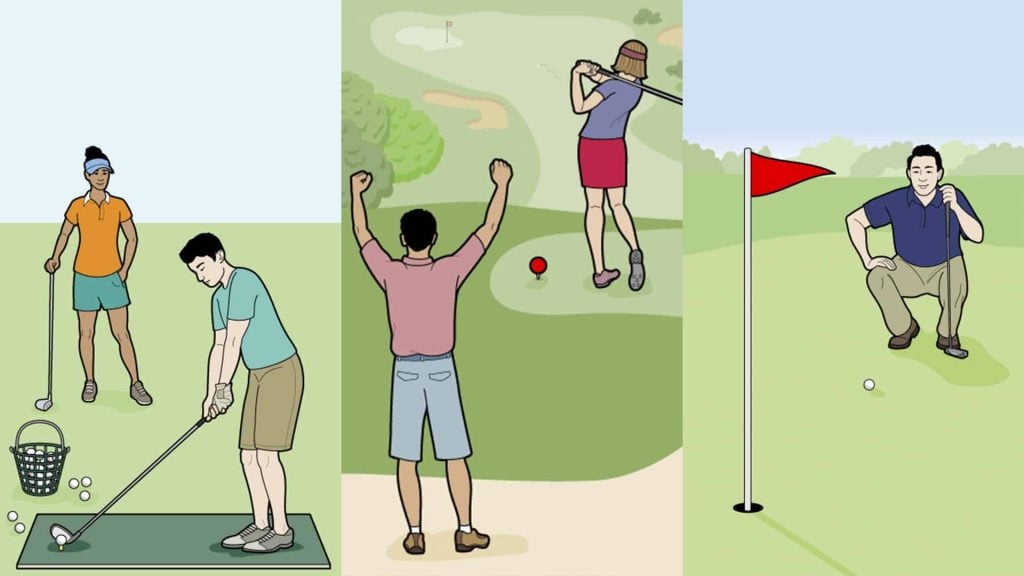
It is essential to know the rules and etiquette of golf. Learners must understand basic rules. Read resources to understand them better. Also, be aware of the dos and don’ts on the golf course.
Develop a proper golf swing. Set up correctly and swing with your hips not your arms. Concentrate on one swing thought at a time to become consistent.
Continue to develop skills by learning and correcting shot techniques. Use tempo, practice with wedges, utilize GPS watches and shot tracking devices, and make smart decisions based on data.
Learning is difficult. Don’t expect too much. Persevere and be dedicated. Enjoy the process of learning. Golf gives character-building and life lessons.
This article is for beginners starting with golf. It talks about the importance of suitable clubs, understanding rules and etiquette, mastering a proper swing, developing skills, and enjoying the learning process.
Getting Started
Getting started with golf can seem daunting, but fear not! In this section, we’ll explore the crucial aspects that will set you on the right track. Discover the importance of beginner-friendly clubs, learn how to find the perfect set of clubs and accessories, and explore the benefits of taking golf lessons. Whether you’re seeking different options for lessons or seeking guidance from seasoned players, this section has got you covered. Let’s tee off on your golf journey!
Importance of suitable beginner-friendly golf clubs
For novices, beginner-friendly golf clubs are essential when starting out. They help to build important skills and confidence. With the right clubs, players can learn technique and hit better shots. When more experienced, they can upgrade to more advanced clubs.

These beginner-friendly golf clubs are designed with larger clubheads, increasing the ‘sweet spot’ for better contact with the ball. They also have larger clubface angles that reduce the margin of error if a shot is mishit.
Plus, these clubs promote proper swing mechanics and alignment. Technology built-in can provide visual or auditory cues to help set up correctly. This helps with muscle memory for the correct swing plane.
It’s wise to consider getting custom-fitted clubs. A professional can assess physical attributes and swing to get clubs tailored to needs. This can maximize potential for improvement and enhance the playing experience. Finding the right clubs is like finding the perfect partner – but when you do, it’s great!
Tips for finding the right set of clubs and accessories
Golfers starting out need the right set of clubs and accessories. It’s important they get equipment that matches their level and ability. Here are some tips to help them:
- Beginners should look for clubs that offer forgiveness, like cavity-backed irons and large drivers. These can help with mishits and give more accuracy and distance.
- Try different clubs to find ones that feel comfortable and suit your swing speed. Factors like grip size, shaft flex and club weight are important here.
- Get advice from golf professionals or club fitters. They can analyze your swing and recommend the best clubs.
It might take a bit of trial and error to find the right set of clubs and accessories. Everyone’s game is unique, so what works for them may not work for you.
For reviews and advice on golf clubs and accessories, check out golf magazines or websites. This can help beginners find the right equipment that will help them develop in golf.
The benefits of taking golf lessons
Golf lessons can be a great way for beginners to enjoy the game and improve their skills.
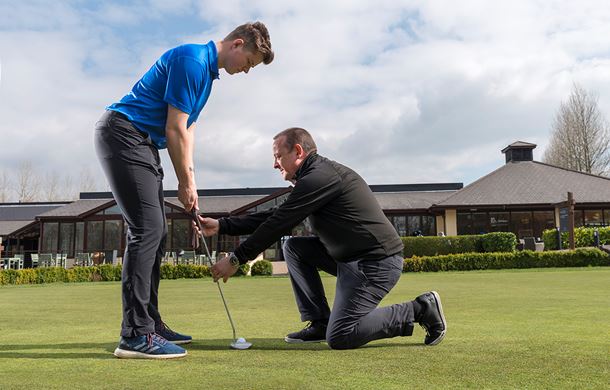
There are many perks, like:
- Improving technique – tutors can teach the right form and mechanics.
- Increasing knowledge – understand the rules, etiquette, and strategies.
- Getting personalized instruction – instructors identify strengths and weaknesses and give tailored advice.
Don’t miss out on this chance to learn faster and have a more satisfying golfing experience. You can find the perfect golf lesson for you!
Different options for golf lessons
Golf lessons are a must for those wanting to learn the sport and improve their skills. There are various options for receiving professional instruction and guidance. These cater to different learning styles, so that beginners can pick the best one for them.
- Group Lessons: A cost-effective method for novices to learn golf. Small groups get guidance from a qualified instructor. Interact with other newbies, learn from their experiences and practice together.
- Private Lessons: Personalized coaching and tailored instructions from a golf pro. Get individualized focus to work on specific areas, analyse swing techniques, and understand game strategy.
- Online Lessons: Learn golf from the comfort of home. Access instructional videos, interactive tutorials, and virtual coaching sessions with experienced instructors. Flexible and progress at your own pace.
Beginners should consider their learning style, time, and budget before selecting the right option. Look into the pros and cons of each before deciding.
If you have access to golf courses or clubs, explore beginner-friendly clinics or intro programs. These provide an introduction to the basics of golf and a chance to network with other newcomers.
The importance of learning from experienced players or mentors
The role of learning from experienced golfers or mentors is significant. They have knowledge and skill that can be very helpful to beginners. By watching and getting advice from them, novices can gain a great understanding of game strategies, techniques and the proper way to behave on the course.
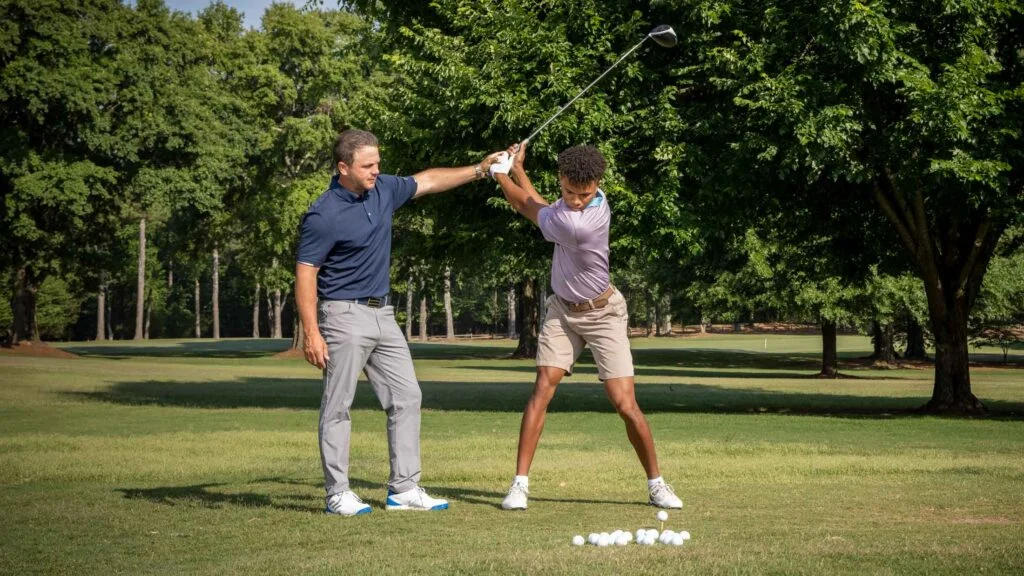
This enables learners to develop their skills faster. Taking advantage of this mentorship is a great way to get started in golf.
The benefits of learning from experienced players or mentors are huge.
- Viewing and copying them helps novices learn the details and do things correctly. Mentors can give personalized tips, and point out what needs improving and how to do it. This personalized help makes sure novices form good habits at the beginning, and avoid bad ones.
Also, learning from experienced players or mentors creates a helpful learning atmosphere. In addition to giving technical knowledge, they also motivate and encourage when things are hard on the course. Frustrations and problems can arise during learning, and having a mentor there offers comfort and guidance.
By getting advice from experienced players or mentors, beginners can speed up their progress and make golf even more enjoyable. The insights they gain not only improve their skill, but also teach patience, commitment and determination – essential qualities for golf and life. Taking advantage of this chance to learn from experts is a key part of becoming a successful golfer.
Learning the rules and etiquette of golf is like learning a secret language. This makes learning from experienced players or mentors even more important.
Rules and Etiquette
In the realm of golf, it is crucial to acquaint oneself with the rules and etiquette. Discover the basics of golf for beginners, explore resources for understanding the game’s rules and etiquette, and familiarize yourself with the essential dos and don’ts.
So, whether you’re stepping onto the course for the first time or seeking to enhance your golfing skills, mastering the rules and etiquette will lay a solid foundation for an enjoyable golfing experience.
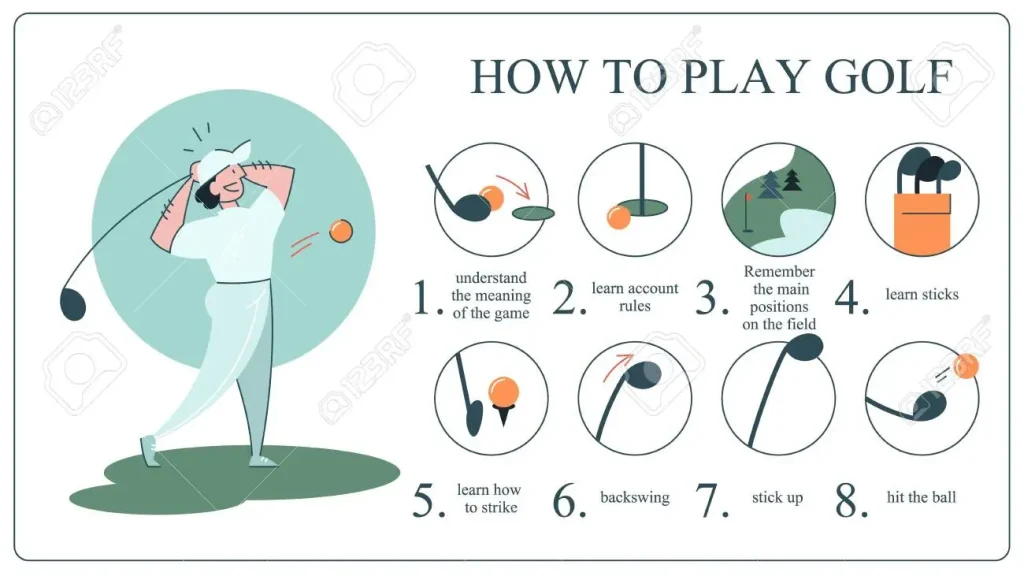
Basic rules of golf for beginners
Golfers, especially beginners, must get to grips with the basic rules of the sport. Comprehending these regulations is a must for playing correctly and fairly.
Firstly, golf is a game in which players hit a minute ball into a succession of holes using as few strokes as possible.
So, it’s important to understand the importance of properly maintaining the clubs, in addition to knowing the etiquette of the course.
Next, it is key to realize how many strikes it takes to complete each hole, as well as the scoring system.
Also, it’s essential to be aware of the penalties that come with certain actions, such as hitting the ball out of bounds or into a water hazard.
By being familiar with these fundamentals, beginners can take part in the game with an understanding of its dynamics. This knowledge will ensure fairness and enjoyment for all players.
Resources for understanding golf rules and etiquette
Golf rules and etiquette are must-knows for newbies who want to get better and have fun. Fortunately, there are sources to help them understand the complexities.
- Books and webpages can explain the rules and etiquette with clarity, plus examples.
- Online forums and discussion boards can be used to ask questions and get advice from experienced golfers.
- Local golf clubs often offer classes for novices which cover rules and etiquette.
- Rulebooks are usually available at courses to check any special regulations.
In addition, observing and interacting with experienced golfers is key to grasping the rules and etiquette. By using these sources and seeking out mentors, newbies can get a better understanding of the game and make the most of their experience.
Dos and don’ts for beginners
Golfers, especially beginners, should remember certain rules. Doing so guarantees a nice time on the course. Here are some dos and don’ts:
- Be respectful of others. This is proper golf etiquette.
- Don’t take forever to play your shots. It’ll slow down the game for everyone.
- Learn and obey the rules of golf. Keep score accurately. Play the ball as it lies.
- Stay alert and watch for potential danger. Safety is top priority.
- Keep a positive attitude, even with mistakes.
Remembering these dos and don’ts will ensure a pleasant golfing experience. Adhere to the etiquette, practice good sportsmanship, and abide by the rules. This way, beginners will gain respect from their fellow golfers and truly enjoy their time spent on the course.
The Golf Swing
Mastering the golf swing is crucial for beginners looking to improve their game. In this section, we will explore key aspects of the golf swing, including the importance of correct set-up and tips for achieving it. We will also discuss the role of the hips in a powerful swing and how to prevent reliance on arm strength. Plus, we’ll uncover the effectiveness of focusing on one swing thought at a time, helping you elevate your technique and performance on the golf course.
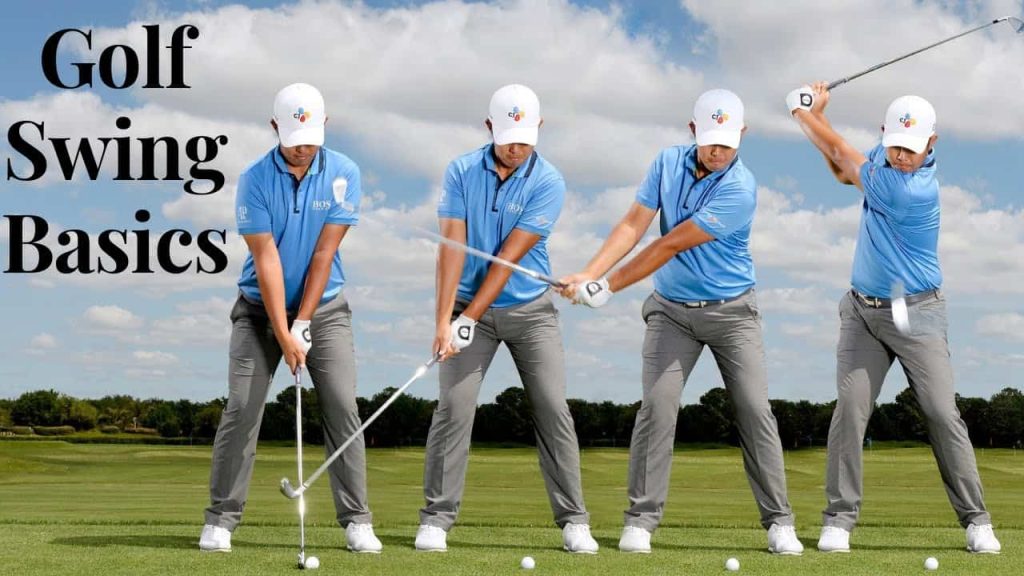
Importance of correct set-up
For a successful golf swing, having the correct set-up is essential. It’s about positioning your body and aiming towards your target.
The set-up requires proper weight distribution, balance, and posture to produce power and accuracy.
Beginners should be aware of the following:
- Feet should be shoulder-width apart for stability.
- Bend from the hips and keep the back straight for a strong posture.
- Arms should be relaxed and extended from the body.
- Position the ball correctly according to the club and desired shot shape.
A study revealed that golfers with correct set-ups had higher success rates in hitting fairways and greens in regulation than those with improper alignments.
The correct set-up cannot be underestimated for golfers looking to improve their game.
Tips for achieving the correct set-up
A great golf swing needs a proper set-up. It’s all about body alignment and pointing yourself to the target. Here are some tips:
- Feet shoulder-width apart, parallel to the target line.
- Place the ball by the left heel (for right-handed players).
- Flex your knees, keep balance.
- Bend from your hips, spine straight, even weight.
- Hands should hang naturally below shoulders.
- Clubface & body aligned to the target line.
It’s vital for consistent & accurate shots. You must find the most comfortable & effective set-up for you. Consistency is the key!
Plus, it’s important to remember that each golfer may have slight variations depending on their physical characteristics. Experimentation & practice will help.
For power, remember to swing with the hips!
Importance of swinging with the hips
Swinging with the hips is important in golf. It boosts power and accuracy. It also helps balance and control during the swing. The hips work like an engine, transferring energy from the lower body to the club. It’s a must for any beginner golfer looking to improve.
Hip rotation helps generate more power and distance, while also maintaining control and accuracy. It enables a full shoulder turn and proper body sequence during the swing. Plus, it helps prevent injuries by spreading force throughout the body. Beginners should focus on this early – it’s the foundation for continued improvement.
Each golfer’s technique may be different, based on physical attributes and skill level. A professional instructor can provide personalized advice. They have experience with all skill levels and can offer insights tailored to each golfer’s needs. This helps ensure beginners learn the correct techniques from the start.
Research shows that hip rotation not only improves performance but also reduces strain on the lower back. A study (Smith et al., 2019) found that those who engaged their hips had greater hip and shoulder rotation, leading to improved clubhead speed and reduced lumbar spine stress. This illustrates the importance of swinging with the hips, for better results and physical well-being.
Preventing swinging with the arms
Golf swings rely on body core power, not arm strength. Too much arm movement means inconsistent shots and no power. To avoid it, check out these six steps!
- Feet shoulder-width apart. Body parallel to target line. Grip the club lightly. Hands in front of body.
- Rotate hips towards target. Use them to generate power and start the downswing.
- Keep arms connected to body. No excessive separation.
- Smooth rhythm and tempo. Not jerky or rushed.
- Start practice with wedges. Use body rotation and core muscles, not arms.
- Focus on one key swing thought. Avoid overwhelming yourself.
Develop strong technique with practice and an instructor’s guidance. Remember to take time and be patient for best results.
When it comes to your swing, always remember: don’t hit that tree!
Focusing on one swing thought at a time
To better your golf swing, focus on one thing at a time. Figure out which part of your swing needs work – posture, grip, timing, or clubface angle. Once you know, practice it over and over. Repetition is essential for lasting swing changes.
Be patient and give yourself time to improve. Don’t try to change multiple things at once as this can cause frustration and slow your progress. By focusing on one area, you can refine your technique without being overwhelmed.
Breaking complex movements into smaller parts helps target practice and increase skill mastery. Beginners, adopt the mindset of focusing on one swing thought and you’ll become better at golf. Dedicate attention to individual elements of your technique and you’ll develop consistency and enhance your game.
Developing Skills
Developing Skills in golf is crucial for beginners to improve their game. In this section, we will explore various aspects such as shot techniques, swinging in tempo, warm-up exercises, utilizing GPS watches and shot tracking devices, and making informed decisions based on data. By delving into these sub-topics, you’ll gain valuable insights and practical tips to enhance your golfing abilities and take your performance to the next level.
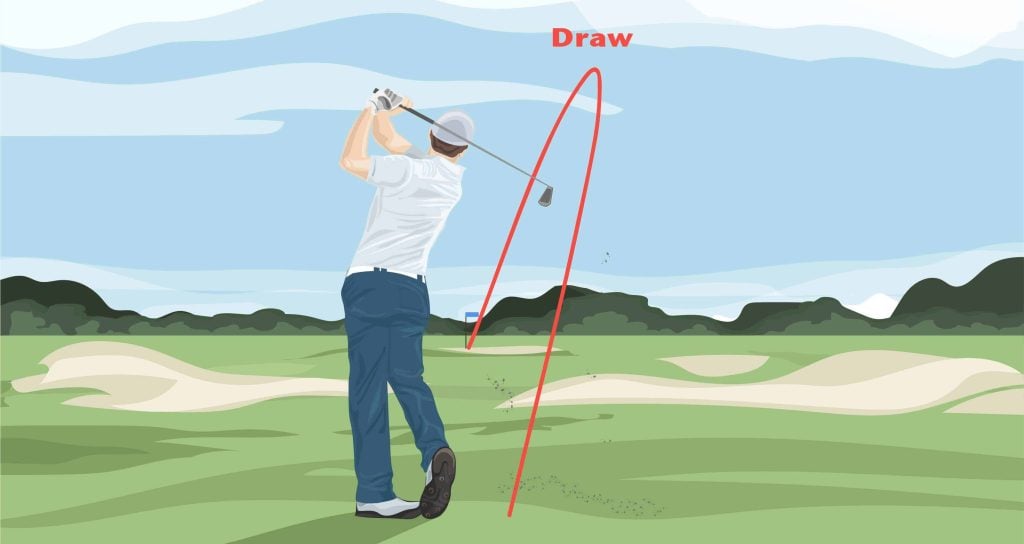
Learning and correcting shot techniques
For golf novices, mastering and enhancing shot techniques is essential. To up their game, they should concentrate on certain areas of their swing mechanics. First of all, the grip is fundamental. Noobs should learn the right grip technique, involving hand placement and pressure. This offers stability and command during the swing.
Alignment is also vital. Beginners have to be taught how to line up their body properly with respect to the target. Accurate alignment is fundamental for striking exact shots.
Additionally, a balanced stance is key. A stable, balanced stance helps learners hold control during the swing. Learning how to distribute weight evenly between both feet is important for steadiness.
The backswing should also be mastered. A steady and controlled backswing sets up the remainder of the shot. It’s essential that noobs focus on maintaining a consistent club path and suitable rotation of the shoulders.
Downswing techniques are another significant element. The downswing plays a major role in producing power and accuracy. Learners should understand how to initiate the downswing with their lower body while keeping their arms relaxed.
And finally, the follow-through is vital. The follow-through helps keep balance and maximizes distance. Noobs should aim to finish a full and smooth follow-through after every shot.
In addition to these techniques, noobs can benefit from analyzing their shots through video analysis, or getting feedback from experienced golfers or instructors. This personalized feedback can identify any flaws or inconsistencies, allowing beginners to make necessary adjustments and become better shot-makers.
To become proficient in shot techniques, noobs must be dedicated, patient, and practice regularly. By embracing the learning journey and searching for chances to improve, noobs can refine their technique over time and eventually become proficient golfers who are capable of executing accurate shots.
Tips for swinging in tempo
Swinging in tempo is an important part of golf. It requires focus and precision. For better performance on the course, gaining the right rhythm and timing is essential.
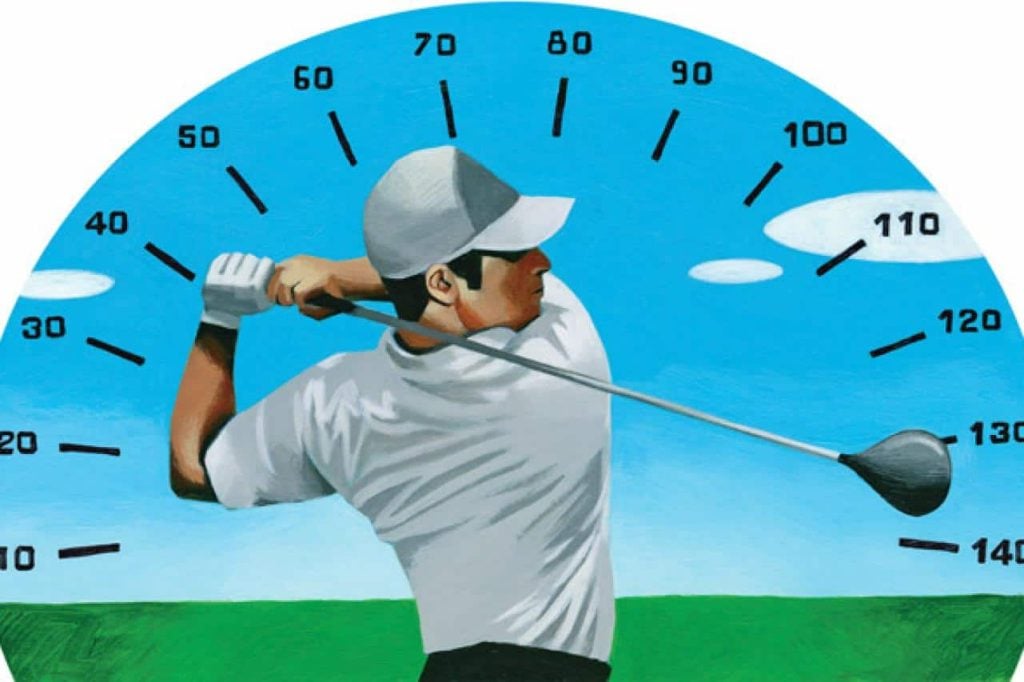
- Create a routine: Making a pre-shot process that includes practice swings, imagining the shot, and aligning your body will help you set a stable tempo for your swing.
- Use a metronome: Practicing with a metronome can help you get a sense of timing and rhythm in your swing. Line up the metronome to a comfortable beat and try to match your swing to it.
- Pay attention to your breathing: Noticing your breaths can help you keep a steady tempo throughout your swing. Take deep, slow breaths and exhale during the downswing to make your motion smooth and relaxed.
Remember, swinging in tempo is not just about power but about finding harmony between your body parts. By keeping a consistent rhythm, you can increase accuracy and distance in your shots.
Try these tips for swinging in tempo and sharpen your technique. Practice regularly and test different approaches until you find what works best. The journey to mastering this essential part of golf is difficult, but with commitment and patience, you will enjoy the benefits of more consistency and control in every swing.
Warming up with wedges
A wedge warm-up routine is essential for golfers. It’s a series of steps to ensure you’re ready before the course.
- Begin with practice swings using a pitching or sand wedge. Increase the speed and intensity for more muscle loosening.
- Practice different shots, such as chip and pitch. This will improve control and feel of the club. And it helps you adjust your technique to the turf.
- The repetition of swinging wedges builds consistency in your swing mechanics. It also gives you distance control – important when scoring.
- On the practice range, focus on crisp shots with proper contact and trajectory. Pay attention to body positioning and alignment.
- The wedge warm-up lets you transition smoothly into your full swing. It enhances performance and provides insights into conditions during the course.
Track your shots with GPS watches to see how far you can throw the club in frustration. Warm-up with wedges today and feel the benefits!
Utilizing GPS watches and shot tracking devices
GPS watches and shot tracking devices are essential for golfers seeking to up their game. They can accurately track shot distance and location, analyze performance, and plan strategies with pre-loaded course maps. Plus, they offer real-time feedback on swing speed, tempo, and other swing metrics.
These devices allow players to identify trends in their game, see strengths and weaknesses, and make informed decisions on each shot. Plus, they provide game improvement tools like virtual coaches and training modes.
In short, GPS watches and shot tracking devices provide invaluable assistance to golfers in optimizing their performance. As technology continues to advance, it’s exciting to witness the evolution of these devices.
Swinging a golf club is akin to dating – it’s all about the hips and taking things slow!
Making smart decisions based on data
The heading ‘Making smart decisions based on data’ can be expanded as follows:
Golfers require analyzing data to make informed choices. This allows them to make strategic decisions and better their performance.
- Shot tracking data can help golfers detect areas that need enhancement.
- GPS watches provide exact info on distances and course layout, benefiting decision-making.
- Data-driven insights let players pick the perfect club for a shot, increasing success chances.
- Gathering and studying stats on past rounds can assist golfers in discovering patterns and altering gameplay.
Data-driven decisions give golfers an edge. These insights can help them adjust strategies, conquer challenges, and ultimately upgrade their performance on the course.
Enjoying the Game
When it comes to enjoying the game of golf as a beginner, there are a few key factors to keep in mind. From managing expectations to persevering with dedication, and even embracing the learning process, this section provides valuable tips to help you have fun on the course while honing your skills. With advice backed by experts in the field, you can navigate the exciting world of golf with confidence and enthusiasm.
Managing expectations
To create a strong base in golf, it’s key to fixate on the fundamentals. This includes proper set-up and swing techniques. Newbies must remember that to become an expert, practice and repetition is essential. Challenges will be presented, but with determination and a good attitude, progress will come.
Guidance from pros or experienced golfers can help in managing expectations. Giving feedback and advice can be useful. It is necessary to establish attainable goals, but it is also important to challenge yourself to grow. Striving for consistent growth instead of immediate excellence allows beginners to have fun without feeling overwhelmed.
In conclusion, managing expectations is necessary for golf newbies. By realizing that progress takes time, setting reasonable objectives, conquering obstacles, and getting advice when needed, novices can navigate their way through this fulfilling sport while taking pleasure in the journey of improvement.
Perseverance and dedication
It is essential for beginners to grasp that progress in golf may be sluggish at times. However, perseverance is essential. It can take months or even years to craft a consistent swing and upgrade one’s game. The learning process may be irritating at times. But, the rewards are worth it for those who persevere.
Golf is a sport that instructs significant life lessons about determination and perseverance. Through dedication, players learn how to overcome obstacles on the course and implement these skills to other areas of their lives. The mental strength needed in golf can have a positive effect on a person’s outlook and way of dealing with challenges beyond the green.
Tips for having fun and embracing the learning process
Golf is a complex sport, so having fun and enjoying the learning process is key for beginners. This helps keep interest alive and helps create a positive mindset for improvement. Challenging? Yes! But with the right attitude, it can be a fun journey. Here’s how:
- Focus on the journey: Enjoy every shot and don’t get discouraged by setbacks.
- Maintain positivity: Patience, dedication, and perseverance are important for success.
- Celebrate small victories: Acknowledge and celebrate improvements in swing technique, distance, and putts. It boosts confidence!
- Seek support: Connect with other beginners and share tips, experiences, and challenges.
Also, work on your resilience. Golf comes with setbacks, but work on bouncing back with determination and positivity. Use mistakes as an opportunity to grow. Lastly, practice regularly, learn from mentors, and have fun!
Conclusion
With a recap of important points, encouragement to keep practicing, and a reminder of golf’s character-building potential, the conclusion offers a compelling end to our journey into how to play golf for beginners.
Recap of important points for beginners
Golfing beginners should know a few key points to get started. This includes:
- Getting beginner-friendly golf clubs and accessories
- Taking lessons from experienced players
- Learning the rules and etiquette
- Proper set-up
- Swinging with the hips
- Consistency and tempo are also essential for perfecting swings
- Additionally, GPS watches and shot tracking devices can help analyze performance data
- Making smart decisions based on this data can improve strategy
As a beginner, it’s important to have patience, perseverance, and dedication. Enjoy the learning process and never give up, as the only way to get better is to keep trying!
Encouragement to continue practicing and seeking improvement
Golf needs patience and dedication. To succeed, beginners must keep practicing and improving.
It is important to emphasize perseverance. This can help them overcome challenges.
Beginners should also find suitable beginner-friendly golf clubs. Some tips can help them do this.
Taking golf lessons from experienced players or mentors is also recommended. This can enhance skills and knowledge.
They should also follow the basic rules and show respect on the golf course. This helps them enjoy the game while developing their abilities.
Focus on set-up and swing techniques. Using hips instead of arms in the swing motion is better.
GPS watches for shot tracking can also be useful. Data analysis helps make smarter decisions.
Enjoyment in golf comes from managing expectations, embracing the learning process, and having fun. Encourage beginners to keep practicing and improve. This will help them reach their potential in this sport.
Reminder of golf as a way to develop character and learn life lessons
Golf is not only a sport; it’s a chance to build valuable character traits and life lessons. As beginners start their golf journey, it’s important to remember this game offers more than physical skills and techniques. Challenges and rewards in golf teach patience, dedication, resilience, and the art of setting realistic goals. It’s the perfect platform for personal growth and self-improvement both on and off the course.
Golf requires discipline, focus, and self-control. It teaches players the value of hard work, determination, and bouncing back from failure. Moreover, it helps develop interpersonal skills such as sportsmanship, etiquette, and respect.
To make the most of the potential for character development in golf, it’s essential to have a positive mindset. Managing expectations means understanding progress may be gradual. Setting realistic goals and focusing on personal growth instead of comparing oneself to others can help beginners appreciate each small achievement.
Commitment is the key to success in golf. Practicing regularly and seeking improvement helps witness the correlation between effort and results. This dedication carries over to other areas of life by instilling values like discipline and a strong work ethic.
Golf gives individuals the chance to shape their character and learn life lessons. It teaches patience, dedication, perseverance, and how to manage expectations. By nurturing these qualities and embracing the learning process, beginners can develop not only as golfers but also as successful people.
Some Facts About How To Play Golf For Beginners:
- ✅ Good technique is more important than expensive clubs, so it is recommended to take golf lessons before investing in new equipment. (Source: Team Research)
- ✅ Beginner-friendly golf clubs provide more forgiveness for bad swings, making them ideal for beginners. (Source: Team Research)
- ✅ Practicing with unsuitable clubs can hinder progress and lead to bad swing habits. (Source: Team Research)
- ✅ Setting up correctly with proper posture, stance, and grip is important for a good swing. (Source: Team Research)
- ✅ Swinging with the hips rather than the arms can lead to better clubhead speed, distance, and consistency. (Source: Team Research)
FAQs about How To Play Golf For Beginners
What are some important golf rules for beginners?
Beginner golfers should familiarize themselves with important golf rules to ensure fair play and etiquette on the course. Some important rules include teeing off behind markers, following shot order on the green, and understanding penalties for hitting the ball out of bounds.
How can I avoid developing bad swing habits when learning golf?
To avoid developing bad swing habits, it is recommended to take golf lessons with a qualified PGA coach. They can help you learn the proper technique and provide guidance to prevent common mistakes that can lead to bad swing habits.
What is the best way to learn golf as a beginner?
The best way to learn golf as a beginner is to start by taking lessons with a professional PGA coach. They can provide you with the fundamentals, proper technique, and guidance to improve your game. It is also beneficial to practice regularly and play with experienced golfers to learn from their knowledge and skills.
Is golf considered an addictive sport?
Golf is often seen as an addictive sport due to its unique challenges and the desire to continuously improve. The pursuit of mastering the game can be highly rewarding and can lead to a lifelong passion for many golfers.
What is a neutral grip in golf?
A neutral grip in golf refers to the positioning of the hands on the club. It means that both hands are aligned and the palms are facing each other, with the “V” formed by the thumb and index finger pointing towards the center of the body. This grip helps promote a more consistent swing and control over the clubface.
Should beginners play 9 or 18-hole courses?
For beginners, it is recommended to start by playing 9-hole courses or shorter courses such as pitch and putt. This allows beginners to gain confidence and practice their skills in a less intimidating environment. Once they feel comfortable, they can progress to playing on full 18-hole courses.





![From Coast to Fairway: How Many Golf Courses Are in California [2024]](https://www.fairwayfindings.com/wp-content/uploads/2023/07/how-many-golf-courses-are-in-california-1-768x768.jpeg)

